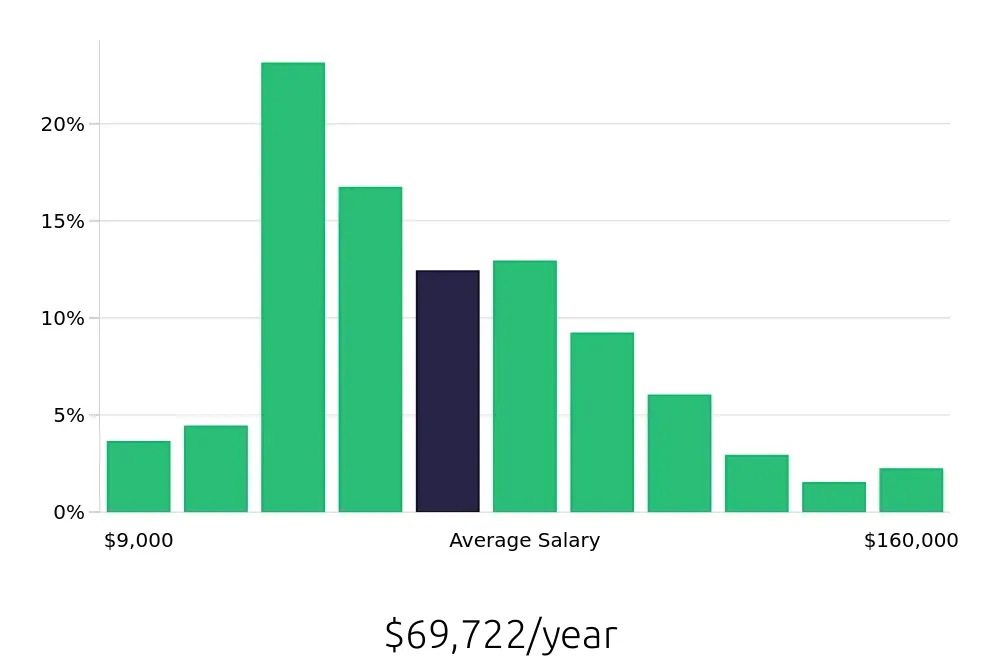What does a Financial Representative do?
A Financial Representative plays a key role in guiding clients to make smart financial choices. They work closely with individuals and businesses to understand their financial goals and needs. This person offers advice on investments, savings, and insurance to help clients secure their financial future. They assess financial situations and develop personalized plans to meet specific objectives.
This role involves regular client interactions, both in-person and over the phone. A Financial Representative listens to client concerns and provides clear explanations about financial products and services. They also keep up-to-date with market trends and changes in financial laws. By doing so, they ensure clients receive the most accurate and relevant financial advice. Effective communication and strong relationship-building skills are essential for success in this position.
How to become a Financial Representative?
To become a Financial Representative, one should follow a structured path that combines education, experience, and licensing. This career provides opportunities to assist clients with their financial needs, including insurance, investments, and retirement planning. Professionals in this role often work for financial services firms or insurance companies.
Here are five key steps to achieve this career goal:
- Earn a high school diploma or GED: A basic education is the starting point. It prepares you for further studies.
- Complete a relevant education program: Many employers prefer candidates with post-secondary education in finance, business, or a related field.
- Gain experience: Seek entry-level positions in financial services or related areas to build your skills and knowledge.
- Obtain necessary licenses: Depending on the state, a Financial Representative may need to pass licensing exams. These tests cover financial products and regulations.
- Continue professional development: Stay current with industry trends and regulations by attending workshops and seminars.
How long does it take to become a Financial Representative?
Many people wonder about the time it takes to become a Financial Representative. The journey can vary depending on several factors. First, the path often starts with a high school diploma or equivalent. Once this is achieved, pursuing education in finance or a related field can help. Many opt for a bachelor's degree, which generally takes four years. However, some might choose to gain experience through internships or entry-level positions.
After the educational foundation, passing licensing exams is crucial. The time needed here can differ. Some may pass quickly, while others might need more time to study and prepare. This process can take a few months to a year or more. Once licensed, gaining experience in the field adds to the qualifications. Most professionals spend several years in various roles within the financial industry. This experience is key to advancing in the field and becoming a successful Financial Representative.
Financial Representative Job Description Sample
We are seeking a motivated and experienced Financial Representative to join our team. This role involves providing financial advice and services to clients, ensuring their financial goals are met through tailored investment strategies.
Responsibilities:
- Build and maintain strong relationships with clients to understand their financial needs and objectives.
- Analyze clients' financial situations to recommend appropriate investment strategies and financial products.
- Provide ongoing financial advice and support to clients, including monitoring and adjusting strategies as necessary.
- Prepare and present financial plans, reports, and investment recommendations.
- Stay informed about financial trends, regulations, and new products to provide the best advice to clients.
Qualifications
- Bachelor's degree in Finance, Business, Economics, or a related field.
- Certified Financial Planner (CFP) designation or equivalent is highly preferred.
- Minimum of 3 years of experience in financial advisory or a related role.
- Strong knowledge of financial products, investment strategies, and market trends.
- Excellent communication and interpersonal skills.
Is becoming a Financial Representative a good career path?
A career as a Financial Representative offers many opportunities. This role involves helping clients manage their finances. Financial Representatives often work for insurance companies, banks, or investment firms. They advise clients on investments, insurance, and retirement plans. This job needs good communication skills and a solid understanding of financial products. It can lead to good earning potential and job satisfaction.
A Financial Representative enjoys several benefits. They can work in various environments, from offices to remote setups. They often have flexible schedules. Financial Representatives can build long-term relationships with clients. The job provides chances for career growth and earning bonuses. However, it also has challenges. The role can be stressful due to high targets and client demands. It requires continuous learning to keep up with financial trends. Managing the pressure of client needs can be tough.
Consider these points before choosing this career path:
- Pros:
- Variety of work environments
- Flexible schedules
- Opportunities for relationship building
- Potential for career growth
- Bonus earnings
- Cons:
- Stressful due to high targets
- Client demands can be challenging
- Need for continuous learning
- Pressure from client needs
What is the job outlook for a Financial Representative?
Job seekers interested in a role as a Financial Representative will find promising opportunities. The Bureau of Labor Statistics (BLS) reports that there are approximately 40,100 job openings each year. This steady flow of positions ensures consistent job availability for those in the field.
The job outlook for Financial Representatives is also positive. The BLS forecasts a 7.4% increase in job openings from 2022 to 2032. This growth suggests that more companies are seeking skilled Financial Representatives to manage their financial services. Aspiring professionals should consider this trend when planning their career paths.
Financial Representatives enjoy competitive compensation. The BLS reports an average annual salary of $109,710. This figure reflects the value placed on their expertise. Additionally, the hourly rate stands at $52.75, highlighting the rewarding nature of the profession. Job seekers can expect both financial stability and professional growth in this role.
Currently 901 Financial Representative job openings, nationwide.
Continue to Salaries for Financial Representative


